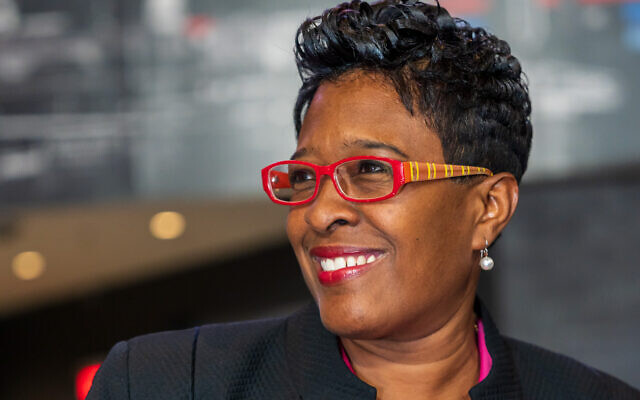Waites Challenges Alexander for Fulton County Superior Court Clerk
The Political Landscape Heats Up in Fulton County Amidst Trump Georgia Election Case
The political atmosphere in Fulton County is becoming increasingly heated, especially with the progress of the Trump Georgia election case. This backdrop sets the stage for a notable electoral contest for the position of clerk of the court. In May 2023, the former Fulton County Superior Court Clerk Cathelene Tina
Robinson retired after serving for 16-years as Clerk. The interim appointed Clerk, Che Alexander, took office in June 2023, succeeding her predecessor as the appointed interim Clerk of the Superior and Magistrate Courts of Fulton County. Alexander, whose resume boasts a wealth of experience from various leadership roles within the Fulton County Government and a broad history of public service, is now up against a formidable challenger: Keisha Sean Waites.
Keisha Sean Waites enters the race with substantial legislative and administrative experience. Having served in the Georgia House of Representatives from 2012 to 2017, is marked by significant political engagement and a dedication to public service. While serving as a citywide Member of the Atlanta City Council, Waites Championed impactful initiatives and legislation, including Erica’s Law, which aimed to increase penalties for habitual dangerous drivers involved in drag and street racing, and Miriam’s Law, named in memory of a victim to ensure dangerous predators are closely monitored and risk accessed before parole release.
Waites has expressed her deep concerns about the current state of the Fulton County Superior Court Clerk’s office. Highlighting the current challenges within the Fulton County Superior Court Clerk’s office, Waites criticizes the leadership under Alexander, pointing out issues of low employee morale, disarray due to high turnover, and a hostile working environment. Further, she condemns the premature disclosure of charges against Donald Trump by Alexander’s office as a breach of duty. The interim Clerk’s lack of experience and careless actions could potentially call into question the integrity of the judicial process.
Before her role on the City Council, Waites served in the Georgia House of Representatives for District 60, encompassing southeast Atlanta and several neighboring cities. Her legislative work included contributions to public safety, transportation, and juvenile justice, showcasing a broad understanding of the state’s multifaceted policy landscape. Notably, Waites was instrumental in authoring House Bill 54, the “Fallen Hero” Bill, which aimed to provide tuition assistance to the children of law enforcement officers killed in the line of duty, further emphasizing her commitment to community support and public service.
In addition to her credentials, Waites has significant experience in emergency management, having held senior leadership positions at the Small Business Administration (SBA) and the Federal Emergency Management Agency (FEMA). Her contributions to disaster recovery and resilience planning, particularly in response to hurricanes Maria, Harvey, and Katrina, further underscore her crisis management capabilities.
The intricate nature of the Trump Georgia election case, which has significantly heightened public and media scrutiny of the clerk of court race, becomes even more convoluted with recent developments surrounding the premature disclosure of charges against former President Donald Trump. As the case continues to command national attention, the role of Fulton County Clerk of Superior and Magistrate Courts, Ché Alexander, has come under the spotlight following an inadvertent leak of charges prior to grand jury approval.
In a candid admission to WSB-TV, Alexander acknowledged the responsibility for the “mishap,” which saw a list of 13 counts against Trump posted on the court’s website hours before the grand jury’s formal annoucement. The document’s premature appearance was subsequently retracted, but not before its capture and publication by Reuters, which led to an initial mischaracterization by Alexander’s office, describing the document as “fictitious.” Alexander later clarified this description, noting the absence of an official stamp as a factor in the document’s initial dismissal as unreal.
The eventual confirmation of the charges by the grand jury, mirroring those prematurely posted, ignited a furor among Trump’s supporters and defense team. Attorneys Drew Findling and Jennifer Little accused the Fulton County District Attorney’s Office of disrespecting the grand jury process, suggesting the leak was not merely an administrative error but indicative of deeper constitutional issues within the case. They argued that the proposed indictment, by virtue of its premature assignment of a case number and judge, highlighted systemic flaws and a disregard for procedural integrity.
Alexander’s explanation of the circumstances leading to the leak sheds light on the interim clerk’s office’s operational pressures. She described an attempt at a “dry run” to ensure the swift posting of any potential indictment, which inadvertently led to the document being saved to a press queue rather than remaining internal. As Alexander admitted, this error stemmed from a misclick that escalated into a significant procedural controversy.
The premature leak and its fallout not only spotlight the Fulton County Clerk of Court’s role in such high-stakes environments but also reflect on the broader narrative of election integrity and the legal system’s capacity to navigate the delicate balance between political actions and criminal accountability.
Against this complex backdrop, Alexander and Waites’s roles become even more critical. Their leadership and administrative skills will be closely scrutinized in the context of Fulton County’s ongoing legal and political developments.
Paid Content by Keisha Waites.




comments